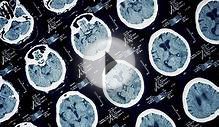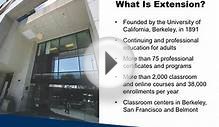
All 12 displayed
- Collect information about individuals or clients, using interviews, case histories, observational techniques, and other assessment methods.
- Document patient information including session notes, progress notes, recommendations, and treatment plans.
- Counsel individuals, groups, or families to help them understand problems, deal with crisis situations, define goals, and develop realistic action plans.
- Develop therapeutic and treatment plans based on clients' interests, abilities, and needs.
- Supervise interns, clinicians in training, and other counselors.
- Advise clients on how they could be helped by counseling.
- Analyze data such as interview notes, test results, and reference manuals to identify symptoms and to diagnose the nature of clients' problems.
- Consult with other professionals, agencies, or universities to discuss therapies, treatments, counseling resources or techniques, and to share occupational information.
- Evaluate the results of counseling methods to determine the reliability and validity of treatments.
- Refer clients to specialists or to other institutions for noncounseling treatment of problems.
- Provide consulting services, including educational programs, outreach programs, and prevention talks to schools, social service agencies, businesses, and the general public.
- Select, administer, and interpret psychological tests to assess intelligence, aptitudes, abilities, or interests.
Knowledge
5 of 7 displayedAll 7 displayed- Psychology — Knowledge of human behavior and performance; individual differences in ability, personality, and interests; learning and motivation; psychological research methods; and the assessment and treatment of behavioral and affective disorders.
- Therapy and Counseling — Knowledge of principles, methods, and procedures for diagnosis, treatment, and rehabilitation of physical and mental dysfunctions, and for career counseling and guidance.
- Customer and Personal Service — Knowledge of principles and processes for providing customer and personal services. This includes customer needs assessment, meeting quality standards for services, and evaluation of customer satisfaction.
- Sociology and Anthropology — Knowledge of group behavior and dynamics, societal trends and influences, human migrations, ethnicity, cultures and their history and origins.
- English Language — Knowledge of the structure and content of the English language including the meaning and spelling of words, rules of composition, and grammar.
- Education and Training — Knowledge of principles and methods for curriculum and training design, teaching and instruction for individuals and groups, and the measurement of training effects.
- Clerical — Knowledge of administrative and clerical procedures and systems such as word processing, managing files and records, stenography and transcription, designing forms, and other office procedures and terminology.
Skills
5 of 20 displayedAll 20 displayed- Social Perceptiveness — Being aware of others' reactions and understanding why they react as they do.
- Active Listening — Giving full attention to what other people are saying, taking time to understand the points being made, asking questions as appropriate, and not interrupting at inappropriate times.
- Critical Thinking — Using logic and reasoning to identify the strengths and weaknesses of alternative solutions, conclusions or approaches to problems.
- Service Orientation — Actively looking for ways to help people.
- Speaking — Talking to others to convey information effectively.
- Active Learning — Understanding the implications of new information for both current and future problem-solving and decision-making.
- Judgment and Decision Making — Considering the relative costs and benefits of potential actions to choose the most appropriate one.
- — Identifying complex problems and reviewing related information to develop and evaluate options and implement solutions.
- Negotiation — Bringing others together and trying to reconcile differences.
- Coordination — Adjusting actions in relation to others' actions.
- Instructing — Teaching others how to do something.
- Learning Strategies — Selecting and using training/instructional methods and procedures appropriate for the situation when learning or teaching new things.
- Science — Using scientific rules and methods to solve problems.
- Systems Evaluation — Identifying measures or indicators of system performance and the actions needed to improve or correct performance, relative to the goals of the system.
- Time Management — Managing one's own time and the time of others.
- Management of Personnel Resources — Motivating, developing, and directing people as they work, identifying the best people for the job.
Abilities
5 of 15 displayedAll 15 displayedShare this Post
Source: www.onetonline.org
INTERESTING PSYCHOLOGY VIDEO

How To Become A Counseling Psychologist

Psychology & Counselling Degree Guide

Post-Baccalaureate Program for Counseling and Psychology ...










